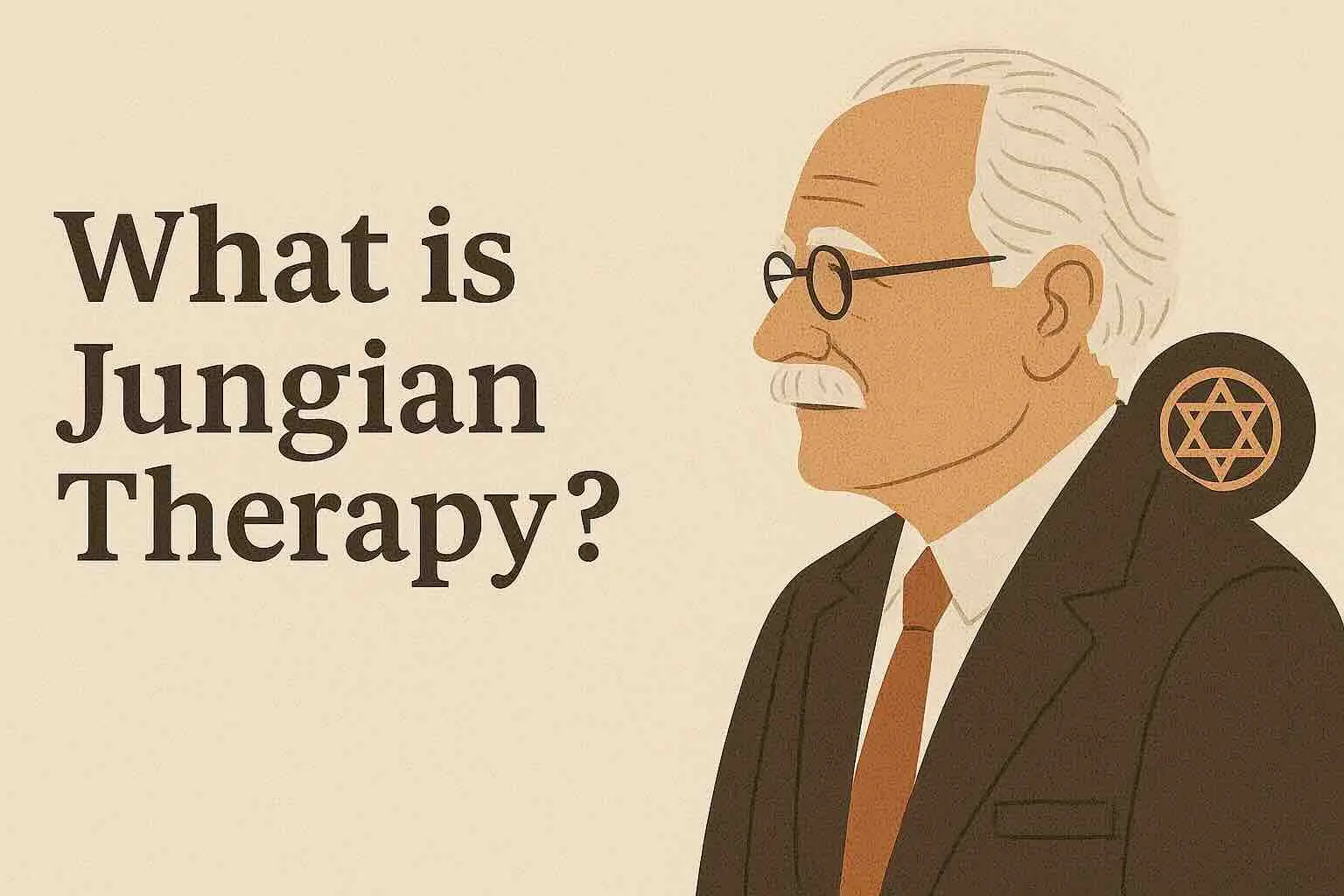TL;DR
Jungian Therapy, developed by Carl Gustav Jung, explores the collective unconscious, archetypes, and shadow aspects to guide clients toward individuation—the process of realizing one’s full psychological potential. Core techniques include dream analysis, active imagination, and symbol amplification. Research shows moderate effectiveness for depression, anxiety, and trauma (d ≈ 0.60). Noah AI supports Jungian work through guided dream journals, symbolic prompts, and self-reflection exercises via chat and call.
Jungian Therapy—also known as Analytical Psychology—dives deep into the unconscious mind, uncovering universal patterns (archetypes) and personal complexes that shape behavior. The therapeutic goal is individuation: integrating conscious and unconscious elements to achieve psychological wholeness.
Core Principles of Jungian Therapy
- Collective Unconscious: A universal psychic inheritance containing archetypes shared across cultures.
- Archetypes: Primordial images and themes (e.g., the Self, Shadow, Anima/Animus, Persona) that manifest in dreams, myths, and behaviors.
- Shadow: The rejected or unconscious aspects of the personality that require integration.
- Anima/Animus: The inner feminine/masculine dimensions influencing relationships and self-perception.
- Individuation: Lifelong journey of self-realization by integrating conscious and unconscious content.
- Synchronicity: Meaningful coincidences reflecting connections between psyche and external events.
Key Techniques
Dream Analysis:
- Dream Journaling: Clients record dreams; therapist identifies archetypal imagery and personal complexes.
- Amplification: Exploring cultural, mythological, and personal associations to deepen understanding of symbols.
Active Imagination:
- Dialogues with Unconscious Figures: Clients consciously interact with dream figures or inner voices through visualization and writing.
- Creative Expression: Art, movement, or writing exercises bring unconscious material to awareness.
Shadow Work:
- Identifying Projection: Recognizing traits attributed to others that belong to the self.
- Integration Exercises: Consciously embracing and expressing disowned qualities through role-play or journaling.
Transference and Countertransference:
- Therapeutic Relationship as Mirror: Analyzing projections between client and therapist reveals unconscious dynamics.
How Jungian Therapy Works
- Initial Exploration: Establish safe relationship and assess personal and archetypal themes.
- Dream and Symbol Work: Systematic dream analysis uncovers unconscious patterns.
- Active Imagination Practice: Clients engage inner figures to integrate unconscious content.
- Shadow Integration: Techniques to recognize, accept, and incorporate shadow aspects.
- Ongoing Individuation: Continuous self-reflection, symbolic exploration, and personal growth.
Evidence of Effectiveness
- Meta-Analytic Findings: Jungian and psychodynamic therapies yield moderate effect sizes (d ≈ 0.60) for mood and anxiety disorders.
- Long-Term Benefits: Individuation-focused therapies show sustained symptom reduction and enhanced well-being over 12–24 months.
- Symbolic Engagement Outcomes: Creative techniques increase self-awareness and resilience.
Who Benefits Most
- Trauma Survivors: Processing complex trauma through symbolic and imagination work.
- Identity and Midlife Concerns: Individuals facing career, relationship, or existential transitions.
- Creative Professionals: Artists and writers exploring inspiration and blocks via archetypal themes.
- Spiritual Seekers: Clients drawn to myth, symbolism, and depth exploration.
Noah AI’s Support for Jungian Practice
Through chat and call, Noah AI adapts Jungian techniques:
- Dream Journal Prompts: Guided questions to record and explore dream symbols.
- Symbol Amplification Exercises: AI offers mythological and cultural associations for dream imagery.
- Active Imagination Scripts: Step-by-step guidance to dialogue with inner figures via text or voice.
- Shadow Integration Tasks: Virtual role-plays encouraging acknowledgment of disowned traits.
- Reflective Summaries: AI mirrors insights, fostering ongoing individuation.
Frequently Asked Questions
Can Jungian Therapy be virtual?
Yes. Dream analysis and active imagination translate effectively to guided chat and call formats.
How many sessions are needed?
Clients often benefit from 20–40 sessions, though initial breakthroughs may occur sooner with focused symbol work.
Is Jungian Therapy religious or spiritual?
While it embraces myth and symbolism, Jungian Therapy is psychological, not religious—it respects diverse beliefs.
Conclusion
Jungian Therapy offers a deep, symbolic path to self-knowledge by exploring the collective unconscious, integrating the shadow, and pursuing individuation. With Noah AI’s virtual support—dream prompts, symbol amplification, and active imagination guidance—this transformative journey becomes accessible anytime, empowering clients to realize their fullest psychological potential.
Download the Noah AI app for iPhone and Android today.
References
- “Meta-Analysis of Psychodynamic and Jungian Therapies” – Journal of Clinical Psychology Review
https://doi.org/10.1016/j.cpr.2025.05.012 - “Dream Analysis and Symbolism in Jungian Practice” – International Journal of Dream Research
https://doi.org/10.11588/ijdr.2025.2.12345 - “Active Imagination: Technique and Outcomes” – Journal of Analytical Psychology
https://doi.org/10.1111/1468-5922.12785 - “Effectiveness of Shadow Work Interventions” – Psychotherapy Research
https://doi.org/10.1080/10503307.2024.999876







